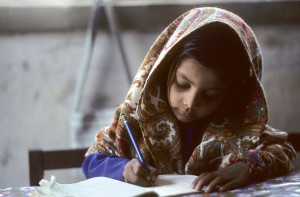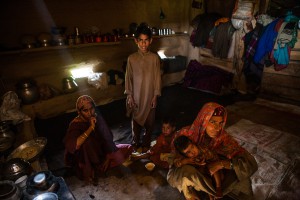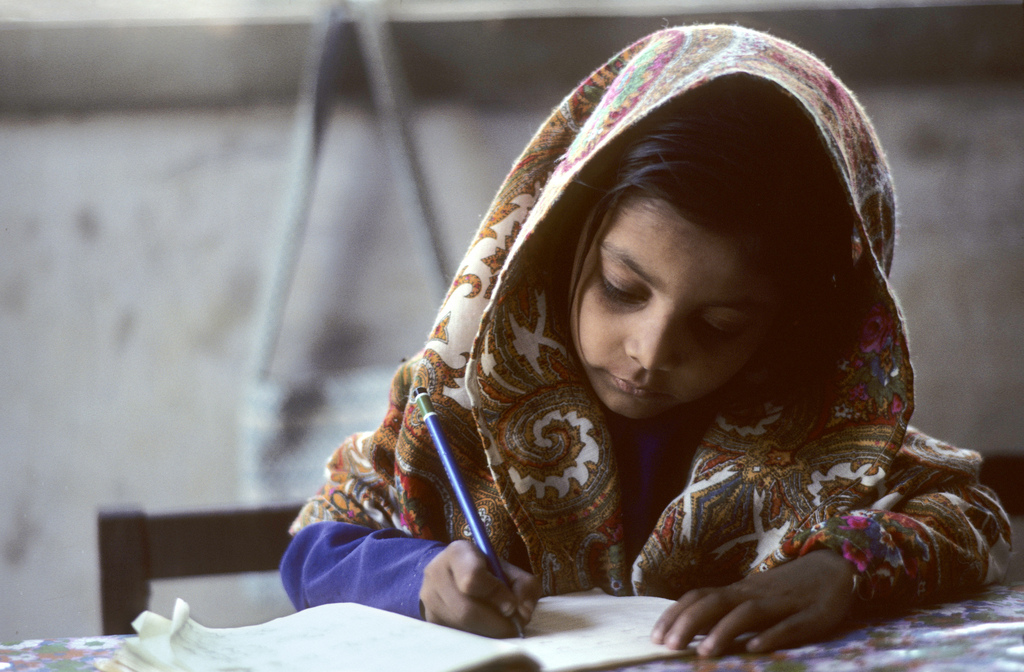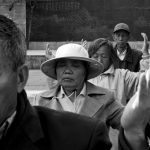In our increasingly globalised world, it is quite common for young people to have a gap year in between graduating and finding a job or going to university. Some go travelling, some work as au-pairs, some combine work and travel into one experience. Another popular employment is work as a development helper in the Third World, be it to work in a school in rural India or to build wells in sub-Saharan Africa. But getting into development is not as easy as it may seem. What difficulties do young people face when trying to get into the field? What do young people need to know about recent changes in development work?
On the 7th of October, UF Malmö welcomed Petter Gustafsson for a lecture on the rights-based approach in development work (RBA). Mr Gustafsson, who did his Bachelor studies in Malmö and his Master studies in Lund, has worked as a human rights observer in Palestine and a development worker in India. Currently, he is the project leader of Koll på läget (Keep Track), a project backed by PeaceWorks Sweden, Swallows Latin America, and the Palestine Solidarity Association of Sweden. In part, the project is to educate young Swedish people – not only on how to get involved in development work – but also on what needs to be considered when working in the field, namely the aforementioned rights-based approach to development.
According to Mr Gustafsson, young people commonly face the same two problems when trying to engage in development work, “First of all, I think that most of them think it’s too difficult to do it, that it’s more difficult to do it than it actually is. As a result, they don’t even start thinking of it. Secondly, I don’t think that older people or the big organisations really make space for young people or make space for them in a way that is suited for young people.” While young people tend to be very excited about bringing change to the world and want to start to do so immediately, the organisational structures of Swedish NGOs often prohibit such an approach. Many of their employees have worked for them for decades, and it is hard to overcome the bureaucratic hurdles and obtain a more short-term position.
As described by Mr Gustafsson, it is not a question of readiness, but rather a lack of opportunities and general knowledge about the procedures of how to become involved that restrains young people from going after their dreams.
 Another problem that Mr Gustafsson mentioned is the persistent misconceptions about development work that young people seem to have. Development work simply is not always as positive as it may seem. In fact, there are often many drawbacks to development work. The proverb “give a man a fish and you feed him for a day; teach a man to fish and you feed him for a lifetime” is often used as an allegory for the different types of help that relief organisations can provide. While it is true that the delivery of direly needed supplies will prevent people from starving, it does not solve the deeply rooted problems that a region in need of development aid usually faces. Shipping grain to one part of the world does not guarantee that the local agriculture will do better at the next harvest. Another example that Mr Gustafsson gave was the used clothing collections in the industrial countries, which usually cause prices to plummet and the local textile industry to be destroyed in the regions where the clothes are distributed.
Another problem that Mr Gustafsson mentioned is the persistent misconceptions about development work that young people seem to have. Development work simply is not always as positive as it may seem. In fact, there are often many drawbacks to development work. The proverb “give a man a fish and you feed him for a day; teach a man to fish and you feed him for a lifetime” is often used as an allegory for the different types of help that relief organisations can provide. While it is true that the delivery of direly needed supplies will prevent people from starving, it does not solve the deeply rooted problems that a region in need of development aid usually faces. Shipping grain to one part of the world does not guarantee that the local agriculture will do better at the next harvest. Another example that Mr Gustafsson gave was the used clothing collections in the industrial countries, which usually cause prices to plummet and the local textile industry to be destroyed in the regions where the clothes are distributed.
It is thus necessary to implement long-term solutions aimed at teaching how to catch the allegoric fish. Measures usually include economic help to strengthen the economy of the designated region; however, the industrialisation brought about by these programmes usually creates new conflicts. Just like in the industrial countries, inequalities in the Third World countries increase and threaten to disturb the progress. In fact, it is countries with high absolute and relative poverty – meaning that while people are generally poor by our standards, there are still big income differences amongst the population – that are most prone to outbreaks of armed conflicts.
As a result, one also has to think about protecting the disadvantaged from the hardships of poverty, income inequalities, corruption and discrimination. The rights-based approach to development, then, combines more traditional forms of economic development with the new emphasis on human rights, in order to provide for a positive long-term development for everyone. This approach, developed after the Second World War, is currently employed by many NGOs across the globe, as well as the UN.
 One example that Mr Gustafsson gives for a successful implementation of the rights-based approach is the Van Gujjars in India, who he worked with during his time with the Swallows India Bangladesh. The Van Gujjars are an ethnic group of nomadic herdsmen who roam the woodlands in the northern parts of India and the foothills of the Himalaya, depending on the time of the year. This nomadic way of life is endangered due to regulations that were recently imposed on them in the form of forest rights. Since they constantly migrate between various administrative regions of the country, none of the local governments feel responsible for them. Further, many Van Gujjars lack documents of identification and formal education, which makes them even more vulnerable to discrimination and corrupt officials. The Swallows India Bangladesh and their local partner organisations assisted the Van Gujjars in obtaining passports, and creating dialogue with the forest authorities in order to establish relations between the two parties. These measures strengthened the position of the Van Gujjars in their struggle for forest rights appropriate for their way of life.
One example that Mr Gustafsson gives for a successful implementation of the rights-based approach is the Van Gujjars in India, who he worked with during his time with the Swallows India Bangladesh. The Van Gujjars are an ethnic group of nomadic herdsmen who roam the woodlands in the northern parts of India and the foothills of the Himalaya, depending on the time of the year. This nomadic way of life is endangered due to regulations that were recently imposed on them in the form of forest rights. Since they constantly migrate between various administrative regions of the country, none of the local governments feel responsible for them. Further, many Van Gujjars lack documents of identification and formal education, which makes them even more vulnerable to discrimination and corrupt officials. The Swallows India Bangladesh and their local partner organisations assisted the Van Gujjars in obtaining passports, and creating dialogue with the forest authorities in order to establish relations between the two parties. These measures strengthened the position of the Van Gujjars in their struggle for forest rights appropriate for their way of life.
As can be seen, getting into the field of development can be harder than it seems. It is necessary for young people to know about the rigidity of the organisational system so as not do start with too high expectations and be disillusioned afterwards. While being motivated is a must in the struggle for changing the world, one also has to give thought to the consequences of one’s actions. The rights-based approach to development provides the ideal basis for sustainable improvements to the lives of everyone.
By Michael Schätzlein
Image credit:
Picture 1: United Nations Photo, licensed under CC BY-NC-ND 2.0
Picture 2: sandeepachetan.com travel photography, licensed under CC BY-NC-ND 2.0










